#more significant than the renaissance
Text
in my personal opinion the chuck e cheese spinel x starbucks employee volleyball (pink pearl) au was the most moving and culturally significant piece of steven universe fan content i’ve ever had the honor of consuming
#steven universe#spinel#volleyball su#spinel x pink pearl#literally life altering#more significant than the renaissance
16 notes
·
View notes
Text
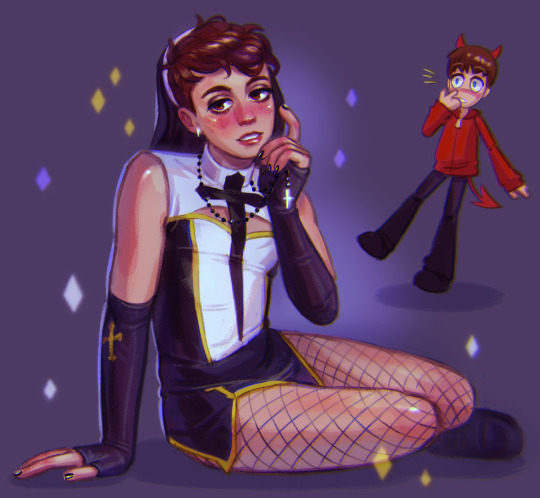
guys i don't think this nun is going to heaven
#this was more culturally significant than renaissance#we're in post sister daniel universe rn#dan and phil#sister daniel#daniel howell#phil lester#amazing phil#amazingphil#danisnotonfire#phan#dnp#dan and phil games#fanart#digital art
903 notes
·
View notes
Photo




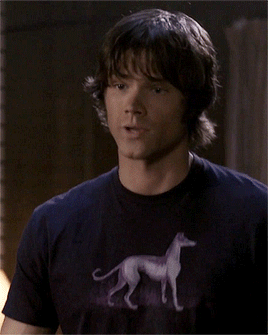
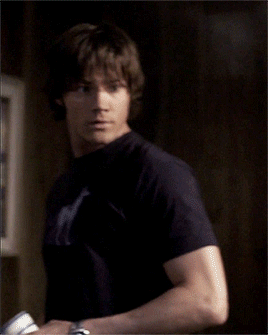
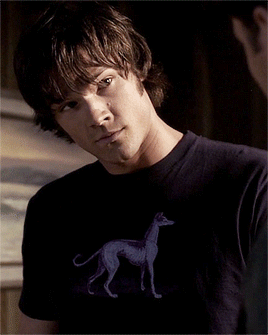

favorite character meme: (2/4) outfits | sam’s "purple dog” shirt
#supernatural#spn#Sam Winchester#spnedit#supernaturaledit#samwinchesteredit#spnsamwinchester#fcm#*#more culturally significant than the renaissance
669 notes
·
View notes
Text
UH…!!
issa cash race you in last place!
youtube
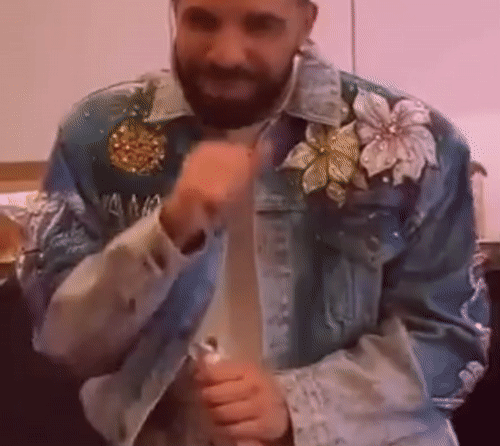
#THIS SONG ALONE IS MORE CULTURALLY SIGNIFICANT THAN THE FRENCH RENAISSANCE#afraid she'll nvr top it#tinashe#songs for you#cash race#Youtube
8 notes
·
View notes
Text
Hey, let's talk gay sports.
The gap in acceptance between gay women and gay men in sports is unbelievably massive. It reminds me of the gap in gay acceptance between western cities and the rest of the world.
The reason western cities have more gay acceptance is tied to the history of globalization and urbanization. As gay people, numbers are our biggest disadvantage. But when we gathered at certain population hubs, we started putting up a serious fight against that disadvantage. Wherever we find big gay numbers, we find gay power.
And we can find huge numbers in women's sports. Several factors contribute to that. Same-sex attracted people naturally seek out same-sex environments. Military, navy, same-sex religious orders, schools, and sports. But men's and women's sports have this same-sex quality in common. So why is gay power progressing at such different rates?
Pregnancy. Specifically, straight and patriarchal pressures around pregnancy. Pregnancy in and of itself is not the end of an athletic career. But an unplanned or untimely pregnancy with minimal support can be. Gay women don't face this pressure. We're way more prevalent in elite veteran sports than we are in general society. The older/more veteran a certain sport's "prime" age is, the more lesbians you'll find.
Some elite women's sports achieve a gay:bi:straight ratio close to 1:1:1. That's a lot of gay women gathered in one place. That's a lot of gay power.
But there's no shortage of gay men in elite sports, either. Just like there's no shortage of gay people outside western cities. But once western urban gay power expanded to the city limits, it grew stagnant and directionless. It didn't push outwards with conviction towards global gay rights. These directionless communities became vulnerable to infiltration and disruption.
I fear that gay power in women's sports is beginning to stagnate as well. Many elite lesbian athletes are dismantling the foundations of women's sports by supporting patriarchal trans infiltration. They're getting tricked into self-destruction because they're directionless.
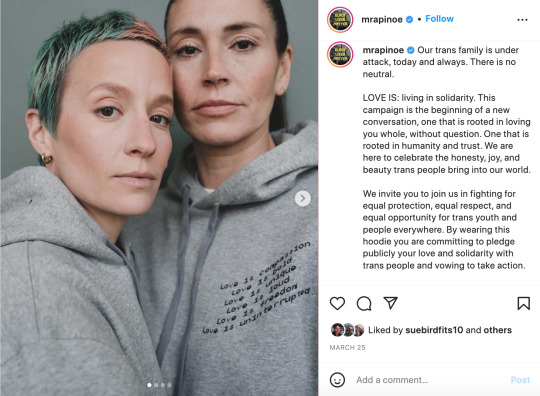
At the highest level of sports, there are no more gay rights horizons for women. They struggled in silence for decades, fearing loss of sponsorship income if they came out. Now, they land massive lesbian athlete couple sponsorships. They've fought a long fight and they've won it. They've improved their little corner of the world, and they're not sure where to go next. So their powerful forward momentum is being used by destructive special interest groups.
I don't think powerful gay communities stagnate because of selfishness. I think there's interest and empathy and some effort to reach gay populations living in silence. But there are communication and cultural barriers and we hesitate around them more than we should.
In basketball, there is strong camaraderie between elite men and women. Lesbian basketball leaders know plenty of closeted gay men in their sport.

They've known them as friends and Olympic teammates for ages. They knew them back when women's basketball was closeted alongside men's. While basketball lesbians made astronomical progress from 2010-2020, they watched their male counterparts make no progress at all.
They care about these guys, but this is a frustrating problem. How do you help the guy who has everything? Absolute worst case scenario, he comes out to join the fight for gay rights, gets traded, and his salary tanks. But he'll still be making more annually than you've made in your entire life. How do you even approach that problem without getting frustrated?
youtube
Q: It's easier for a gay person in this league than it would be for an NB@ player. And conversely, you guys are getting robbed at the bank as far as pay. There's a lot of movement to be made on both sides.
DT: Yeah. You know, our movement always comes in the form of money. And, on the male side, it comes from the movement of mental evolution, which takes a lot longer for males to do because insecurity runs wild in their blood.
Oh. So they're just a bunch of manlets. I guess I knew that.
The entire culture of silence and macho homophobia in men's sports is a problem men created for themselves. Everything gay male pros are stressed about, lesbian veterans have fought through and survived. And they've come out the other end thriving. But gay male pros still won't follow their example.
Lesbian veterans have earned the right to ignore all this and move on with their lives. But often, the next step in their lives is NB@ assistant coach. Out lesbians can coach in the NB@, but out gay men can't. However, closeted gay male superstars can roll up as assistant coaches whenever they want.

In fact, in the entire competitive basketball world, there is only one out gay male coach. Curt Miller. He makes about 200k coaching professional women's basketball. That's a lot less money than an NB@ gig. And it's also a lot less misery.

Coach Miller has no time or patience for that messy closet nonsense. So, early in his coaching career, he ditched men's basketball as a lost cause.
If it looked bad then, it's worse now. Acceptance of healthy same-sex couples is no longer a topic of mainstream discourse. Sport culture has gone from "lesbian athletes exist" to "trans lives matter." Everyone collectively leap-frogged over "gay male athletes exist." One of the most influential players is transing his gay son into a "straight daughter." So we're already deep into nightmare territory.
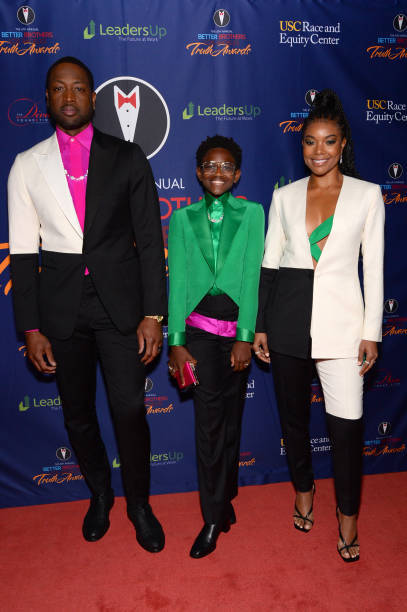
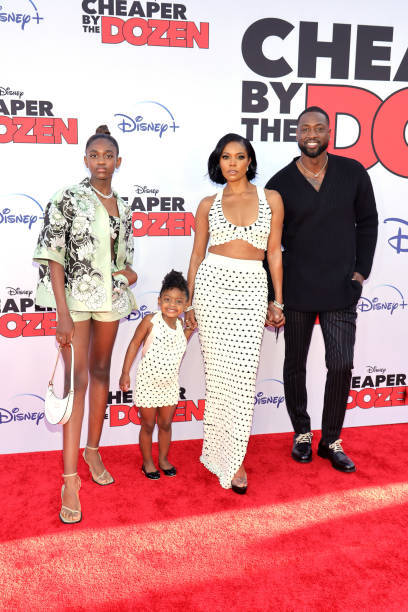
"Oh No... Tiny Gay Son... 😑"
"Yay! Trendy Straight Daughter! 😁"
The NB@ is a suffocating league where no gay or bi males can be out. They can't even be in a glass closet like women's basketball once was. They build and maintain closets of steel. And behind those closet doors, it's a mess.
Lesbian pros don't have an obligation to help gay male pros who won't help themselves. But when Sue made Lebron come on her show to promote her trans rights thing, I couldn't stop cringing (@16:40). The last thing anyone needs is an aimless lesbian activist pushing more trans ideology into the NB@. She could've used her veteran status to make Lebron say "I'm not afraid of sharing locker rooms with gay teammates." That would've had a bigger impact. Why can't he just say that? Unless his picture-perfect high school sweetheart soulmate marriage is just as beardy as it sounds...
Ugh. Okay. I've written this to death. I have 2 datalounge tabs open and that is 2 too many. This topic is messy and exhausting. Maybe Coach Miller is onto something and men's basketball is a lost cause. But if gay male pros would step the fuck up and live openly like lesbian pros, it would change everything.
#i'm censoring NB@ because i don't want to summon NB@ fans lol#I posted Mr. Kyle up there with Sue and DT#he's like... the normie well-adjusted least-fucked-up closet basketball gay...#he also got lowkey outed by Sue's drunk TRA/queer-influencer fiance...#and Timmy up there with Coach Becky#Timmy's an oddball. He's obsessed with knights and high fantasy and renaissance faires lol#towards the end of his career he was having some romantic drama on the Spurs#maybe that's why they were in such a rush to bring Becky onto the coaching staff in 2014... to babysit the depressed gay superstar#but there's a lot more than just kyle and timmy and i think that's part of the problem#it's like... at least 1 in 8 NB@ players... so a significant amount#i think it's about the fans more than anything. maybe they could tolerate one or two gay NB@ players#but if straight men found out that NB@ players were regularly gay... and sleeping with each other... idk lol the economy would collapse#it's like judas priest all over again#straight men looove love love to stan quirky closeted gay men. they can't get enough#but they can't handle it when those gay men come out
43 notes
·
View notes
Text
The Hunger Games 2023 Renaissance and Gen Z's "Bad Media Literacy"
So, not sure how it's going on other social media, but The Hunger Games – that will be referred to as THG in this little "essay" – is having a massive "renaissance" all over TikTok. And I've seen, more than once, unfortunately, people saying that Gen Z people have bad media literacy.
My issue with that is one specific argument. One about the people who have been genuinely surprised with nuances and details they didn't notice in the first they read it.
Which's such a stupid argument. Even more when, as I've seen, made by people who read the books as they came out and watched the movies as they came out. They tend to be in the younger side of the Millennials.
Do you know when Gen Zs were born? Here:

So, let's say the specific years are from 1995 up to 2013.
Here's when the trilogy was originally published;

As you see: a significant part of this generation couldn't read or wasn't even born when these books came out. That's how young this generation is.
But also, the oldest ones were between 13 and 16 as the books came out. It's unfair to expect that a 13-year-old will read THG and see the same subtext and nuances and have the same interpretation as people 18-and-above.
It's not bad media literacy that someone in their mid-to-late 20s is seeing things in a trilogy they've read ten or more years ago.
I, for example, read these books in 2013. They came out in 2010/1/2 in Brazil. I borrowed them from a classmate who had the money to buy them as they came out here. I was 15. Then got my hands on PDFs and read them in English later in the same year, I was 16. I never noticed a lot of subtext and nuances and shit when I read them ten years ago.
Both because of course I wouldn't, I was a teenager. And I read it as an escapism for some stuff. They were fun. I read the trilogy in a week – which's fast when you have school, schoolwork, almost all the home chores and the responsibility of taking care of an adult – and I wasn't looking for anything but a distraction. For a little bit of fun.
People roughly my age are seeing these videos and talks and are learning details and nuances they didn't before. It's fun, it's nice. I'm having a blast to re-read those books aware that they're more than what I thought they were back in the day.
Don't belittle people for not understand deeper and more mature topics when they didn't have the age and maturity to understand those topics.
#the hunger games#the hunger games renaissance#gen zs are not as stupid as you think they are#we were just children fifteen years ago
2K notes
·
View notes
Note
What's OSR? I've seen you mention it several times in your RPG posts. Is it like a genre of rpg or...?
Hey, sorry I took so long to reply to this lol you probably already just googled it by now.
But like. Anyway.
OSR (Old-School Revival, Old-School Renaissance, and more uncommonly Old-School Rules or Old-School Revolution, no one can really agree on what the R means) is less like a genre and more like a movement or a loosely connected community that seeks to capture the tone, feel and/or playstyle of 70's and 80's fantasy roleplaying games (with a particular emphasis on old-school editions of Dungeons and Dragons, particularly the Basic D&D line but pretty much anything before 3e falls under this umbrella), or at least an idealized version of what people remember those games felt like to play.
There isn't exactly a consensus on what makes a game OSR but here's my personal list of things that I find to be common motifs in OSR game design and GM philosophy. Not every game in the movement features all of these things, but must certainly feature a few of them.
Rulings over rules: most OSR games lack mechanically codified rules for a lot of the actions that in modern D&D (and games influenced by it) would be covered by a skill system. Rather that try to have rules applicable for every situation, these games often have somewhat barebones rules, with the expectation that when a player tries to do something not covered by them the GM will have to make a ruling about it or negotiate a dice roll that feels fair (a common resolution system for this type of situation is d20 roll-under vs a stat that feels relevant, a d6 roll with x-in-6 chance to succeed, or just adjudicating the outcome based on how the player describes their actions)
"The solution is not on your character sheet": Related to the point above, the lack of character skills means that very few problems can be solved by saying "I roll [skill]". E.g. Looking for traps in an OSR game will look less like "I rolled 18 on my perception check" and more like "I poke the flagstones ahead with a stick to check if they're pressure plates" with maybe the GM asking for a roll or a saving throw if you do end up triggering a trap.
High lethality: Characters are squishy, and generally die much more easily. But conversely, character creation is often very quick, so if your character dies you can usually be playing again in minutes as long as there's a decent chance to integrate your new PC into the game.
Lack of emphasis on encounter balance: It's not uncommon for the PCs to find themselves way out of their depth, with encounters where they're almost guaranteed to lose unless they run away or find a creative way to stack the deck in their favor.
Combat as a failure state: Due to the two points above, not every encounter is meant to be fought, as doing so is generally not worth the risk and likely to end up badly. Players a generally better off finding ways to circumvent encounters through sneaking around them, outsmarting them, or out-maneauvering them, fighting only when there's no other option or when they've taken steps to make sure the battle is fought on their terms (e.g. luring enemies into traps or environmental hazards, stuff like that)
Emphasis on inventory and items: As skills, class features and character builds are less significant than in modern D&D (or sometimes outright nonexistent), a large part of the way the players engage with the world instead revolves around what they carry and how they use it. A lot of these games have you randomly roll your starting inventory, and often this will become as much a significant part of your character as your class is, even with seemingly useless clutter items. E.g. a hand mirror can become an invaluable tool for peeping around corners and doorways. This kind of gameplay techncially possible on modern D&D but in OSR games it's often vital.
Gold for XP: somewhat related to the above, in many of these games your XP will be determined by how much treasure you gather, casting players in the role and mindset of trasure hutners, grave robbers, etc.
Situations, not plots: This is more of a GM culture thing than an intrinsic feature of the games, but OSR campaigns will often eschew the long-form GM-authored Epic narrative that has become the norm since the late AD&D 2e era, in favor of a more sandbox-y "here's an initial situation, it's up to you what you do with it" style. This means that you probably won't be getting elaborate scenes plotted out sessions in advance to tie into your backstory and character arc, but it also means increased player agency, casting the GM in the role of less of a plot writer or narrator and more of a referee.
Like I said, these are not universal, and a lot of games that fall under the OSR umbrella will eschew some or most of these (it's very common for a lot of games to drop the gold-for-xp thing in favor of a different reawrd structure), but IMO they're a good baseline for understanding common features of the movement as a whole.
Of course, the OSR movement covers A LOT of different games, which I'd classify in the following categories by how much they deviate from their source of inspiration:
Retroclones are basically recreations of the ruleset of older D&D editions but without the D&D trademark, sometimes with a new coat of paint. E.g. OSRIC and For Gold and Glory are clones of AD&D (1e and 2e respectively); Whitebox and Fantastic Medieval Campaigns are recreations of the original 1974 white box D&D release; Old School Essentials, Basic Fantasy and Labyrinth Lord are clones of the 1981 B/X D&D set. Some of these recreate the original rules as-is, editing the text or reorganizing the information to be clearer but otherwise leaving the meachnics unchanged, while others will make slight rules changes to remove quirks that have come to be considered annoying in hindsight, some of them might mix and match features from different editions, but otherwise they're mostly straight up recreations of old-school D&D releases.
There are games that I would call "old-school compatible", that feature significant enough mechanical changes from old-school D&D to be considered a different game, but try to maintain mechanical compatibility with materials made for it. Games like The Black Hack, Knave, Macchiato Monsters, Dungeon Reavers, Whitehack, etc. play very differently from old-school D&D, and from each other, but you generally can grab any module made for any pre-3e D&D edition and run it with any of them with very little to no effort needed in conversion.
There's a third category that I wouldn't know how to call. Some people call then Nu-OSR or NSR (short for New School revolution) while a small minority of people argue that they aren't really part of the OSR movement but instead their own thing. I've personally taken to calling them "Old School Baroque". These are games that try to replicate different aspects of the tone and feel of old-school fantasy roleplaying games while borrowing few to none mechanics from them and not making any particular attempts to be mechanically compatible. Games like Into the Odd, Mörk Borg, Troika!, a dungeon game, FLEE, DURF, Songbirds, Mausritter, bastards, Cairn, Sledgehammer, and too many more to name. In my opinion this subsection of the OSR space is where it gets interesting, as there's so many different ways people try to recreate that old-school flavor with different mechanics.
(Of course, not everything fits neatly into these, e.g. I would consider stuff like Dungeon Crawl Classics to be somewhere inbetween category 1 and 2, and stuff like GloG or RELIC to be somewhere imbetween categories 2 and 3)
The OSR movement does have its ugly side, as it's to be expected by the fact that a huge part of the driving force behind it is nostalgia. Some people might be in it because it harkens back to a spirit of DIY and player agency that has been lost in traditional fantasy roleplaying games, but it's udneniable that some people are also in it because for them it harkens back to a time before "D&D went woke" when tabletop roleplaying was considered a hobby primarily for and by white men. That being said... generally those types of guys keep to themselves in their own little circlejerk, and it's pretty easy to find OSR spaces that are progressive and have a sinificant number of queer, POC, and marginalized creators.
205 notes
·
View notes
Note
(About the Dana post)
ALSO LIKE. THE WAY HE WAS PROBABLY IN THE MIDDLE OF SOMETHING ELSE AND THEN JUST. DID THAT.
Like he's holding a clipboard! I'm willing to bet Willow just slid under him with some encouraging chant to hype up the team, and Hunter just went "ah yes spot for me"
What if I explode
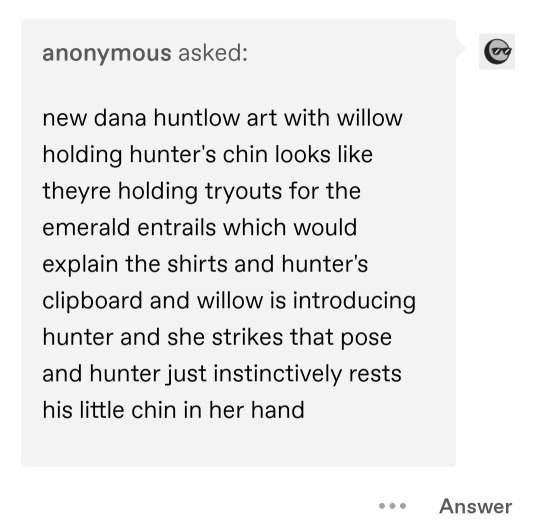
YEAHHHHH!!! Talking about this sketch and the implications makes me very unwell. Also the little gesture of happily resting his chin in her palm is just like something a sweet doggy would do before looking up at you with confused yet earnest eyes and then wagging his tail hopefully. He's so doggy like to me. Do you know what I mean? You know what I mean <333
Agsbdjnk the clipboard. A silly little sketch but with visual storytelling. It's absolutely tryouts or something similar. I imagine that Willow is the only EE player that is dedicated to playing longterm while the others have a lot of fun during their time on the team but eventually move on to other ventures after a year or two. Once Boscha improves her behaviour after FTF, I could see Skara wanting to return to playing grudgby. She seemed to really love it. So Willow and Hunter are on the ball near immediately to find a replacement. And with the Flyer Derby renaissance Willow has lowkey started at Hexside, there's a way bigger turn out than the last time she needed recruits.
Judging by Hunter's level of relaxed contentment and Willow not giving it much notice, a good chunk of time has passed since the events of W&D. They're very attuned to each other, having probably been joined at the hip for a while now.
(We're gonna ignore the fact that Hunter doesn't have his post TTT scars. Presumably Dana just forgot agsbdjk.)
Definitely post grom I imagine. If you compare Hunter's body language in both pics
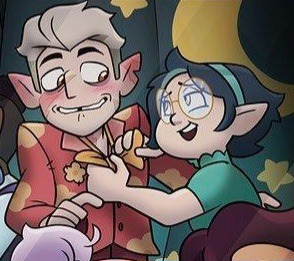
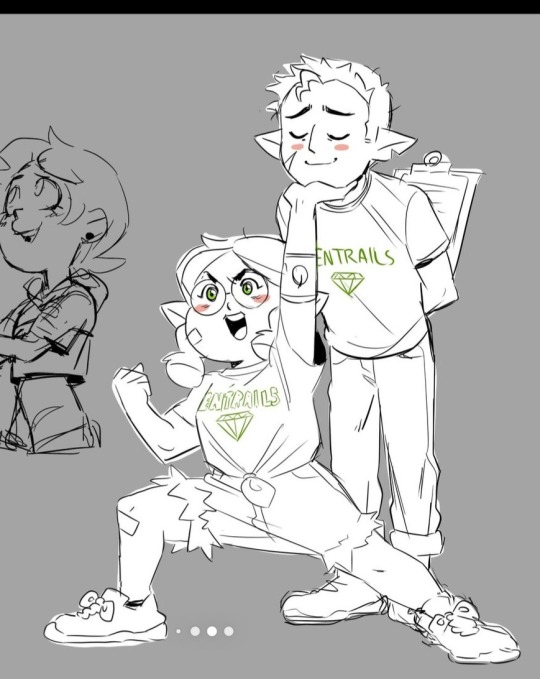
In the left pic, I don't think he's unwilling to be touched. He's definitely excited about wherever the FUCK this is going. But he looks stiff and his smile is twitchy, clearly nervous. Which implies that he's not that used to Willow being so touchy with him and he's a little out of his depth. My headcanon is that grom was when they officially got together, after months of situationship shenanigans. With that little idea in mind, this is just the beginning of their relationship.
When it comes to the pic on the right, I imagine it's also quite early in the dating stage. Early enough that they've only just broached the exciting world of more intimately affectionate touches. Which Hunter has evidently not built up an immunity to yet. Still melts every time.
Yeah that is definitely a boy who has only been in a relationship long enough to discover that he loves the feeling of his face being held, but also a boy who's so comfortable in his relationship that he's not shy about seeking out affection when he wants it. Even in public.
So he's still swoony but not shy about it anymore. So I'd say a few weeks-a month or two into dating.
(Also the haircuts align with this little timeline I've made up in my head. Willow has cut her hair short for grom, while it's in the season 2 short stubby braids during tryouts. So it HAS grown out but only a little. Meanwhile Hunter's hair has grown out a bit during grom, but looks recently trimmed during tryouts. There's no real significance to this. I watched a Dana livestream once where she said she'd rather just draw short hair Hunter because the long hair noodle is annoying to draw. But asgbknk! I like to make up implications where there are none. Anyway my hc is that Willow and Hunter do not just decide on a signature hair length and keep it forever. They spend the next three years bouncing back and forth between long and short styles.)
ANYWAY Willow is absolutely hyping Hunter the fuck up as the Golden Star of her team!! The best and the brightest!! Her pride and joy as a Captain. The purpose is to get the candidates all excited to do their best to get a spot on this epic team so they can play alongside him, but Hunter misinterprets Willow's praise as sweet talk and smiles and blushes appropriately.
Agsbdjnk it's so funny. He totally understood that the goal was to get their potential players PUMPED and he was excellently playing along with riling them up. But that glowing review of his character distracted him and now he thinks they're flirting. So the super cool badass disposition he had adapted for the newbies was promptly thrown out the window because hehehehe my girlfriend is so nice to me 🥰 Bro has forgotten where he is. Head empty.
So when Willow juts out a hand to aggressively present ✨️Him✨️ to the audience, Hunter's already gooey brain just says put chin in hand because sweet girl soft girl my girl.
Willow is a little thrown off but when she feels the weight of his face but just rolls with it and keeps going. She even gives him an affectionate little caress. I think she recognizes that he's misunderstood the tone a bit and has decided to not tell him. He usually gets very embarrassed when its pointed out that he's made a social error and she doesn't wanna do that to him. It's harmless and its cute, who cares? He's a little confused but he's got the spirit.
73 notes
·
View notes
Text
Let’s talk honestly
So I just wanna share where I’m at these days with Tumblr, the community, and some concerning developments as of late. Firstly, I want to thank all 5k of you for supporting me for almost a decade on this platform. It has been a wild ride with ups and downs but this community has really given me an overall positive impact on my self image, bettered my writing skills, and helped to come to terms with who I am as a person and as a kinkster. So above all, I have so much gratitude for y’all, thank you.
Over the last couple of months, I have taken notice to some difficulties on behalf of Tumblr and their censorship efforts against queer erotic writing. I have had to fight more flags and community labels than ever before, and it has really affected my desire and motivation to publish more stories. If only certain folks with their mature censor turned off can read my posts, that fuckin sucks. But I admittedly got rather stoned last night and thought about why Tumblr is cracking down so viciously on our content. I think I’ve come to my own conclusion there.
I am and have been extremely alarmed by a number of tropes that have become relatively commonplace in recently posted tf prose. As I have mentioned countless times before, underage people have no business being in your sexual fantasy fiction whatsoever. The amount of writers I’ve seen recently posting stories focusing on 12-16 year of children being erotically transformed is disturbing to put it delicately. Especially those which maintain the children’s psychological age intact, but even without that trope it is inappropriate, unacceptable, and should not be platformed on Tumblr.
In addition, I’d like to touch on another trope: homophobic tf. Now I have no issue whatsoever with Gay to straight, as being straight is a valid expression of sexual orientation. There is nothing wrong with featuring characters from a wide array of identities. That being said, this new content of lib to con, MAGA tf, gay bashing tf… it’s disgusting. In the current world we live in, these types of archetypical characters do exist in the real world and are causing real significant harm to queer folks. These groups of people are actively, in their own words, trying to eradicate the LGBT community in America. These types of people exist all over the world as well, and queer identifying people live in legitimate, actual fear for their lives. I question why we fetishize individuals who seek a literal genocide of an entire peoples, and whether it is acceptable to do so. I point to the fetishization of Nazism as an apt comparison: a hypermasculinized group of people who sought eradication of a group of people based solely on concrete identities which could not be changed. I believe we as a community have rightly deplatformed such content, and I cannot fathom why this current iteration is in such a Renaissance.
These are just two examples of obvious reasoning as to why Tumblr might righteously suppress tf erotica on their platform. Can I blame them? No. Frankly, I understand completely. If the community refuses to monitor and moderate its on content, then Tumblr as the platform most certainly will.
I’m unsure as to what the future looks like for Ides, as this current trajectory is not something I’d like to participate in. I’m hoping like minded writers will be a bit more critical in choosing the tropes and prompts for their stories, but in all honesty, I have significant doubts. Rest assured, I will touch base with y’all before I do anything drastic. But in my opinion, the writing is on the wall.
166 notes
·
View notes
Text
S/O's Hobbies HCs
This wasn't requested, but I wrote down the first little idea and then it snowballed wildly out of my control. Have some Bay Boys and how they engage with their partner's hobbies.

Like their namesakes suggest, these are Renaissance men, okay? They do a bit of everything (partially because they've always had a lot of time to fill), and they absolutely want to learn about whatever you do.

Donnie is naturally curious across the board. He wants to know a bit about everything all the time- and you happen to be his favorite subject to study! Even if your hobbies aren't his thing, he absolutely wants to learn about them.
He also loves to apply his own knowledge to them! If he knows something about it that you might not, he loves to offer it up- exchange of knowledge is this guy's love language. He's careful not to sound condescending, he's just excited!
If you're into woodwork, he's over the moon- he hates doing it himself. He'd much rather weld for three days straight than have to work with wood for any significant period of time. However, he does love dropping tree facts on you ("You know, this tree is actually considered invasive in parts of Europe.").
If you're into anything with a chemistry element, like cooking or baking (or makeup or traditional art), he's all about it. He views it all from a very chemistry-heavy angle, so he adores hearing and seeing your thought process and perspective. He knows how the ingredients you're using (or were used in your supplies) work together to create the end product, but he loves to learn about how you use them.
If you're any kind of performer, he loves seeing you practice! Please show him videos of your performances, he'll love every single second. He is your biggest cheerleader. He'll notice little details in your work ("I love how you said that line! Quick and angry but still speaking so clearly- that's so impressive, love." or "Oh!! That spin! Look at you go!" or "That note was perfect, sweetheart- I could listen to this all day.") and will absolutely study up on your art of choice so that he can better appreciate what you do!
Same with sports! He loves to watch any clips you have, even if they're from your friend's shitty eight year old camera that has about 12 pixels to offer. Don would absolutely do drills with you if you asked- pitch a ball, guard a goal, swing a bat, whatever. He likes trading warm up and cool down routines, too!
You're into mechanics? Machinery? He's so excited to compare notes. You love driving- or even better, being driven? Dates on the road. All the time.
If you write, he would love to read anything you'll give him! If you write nonfiction, he loves to see your thoughts and findings and keeps a little notepad of questions and observations to talk to you about. If you're a fiction person, he loves to find your voice in the descriptions and characters! He gets absorbed in the story- right up until he sees a phrase you use a lot around him, and he has to take a second to be all smiley because he loves you before he keeps reading. Poetry? He somehow admires you even more than he already did. Will absolutely ask you if he can print a copy of one of your poems to keep by his computers- it doesn't take long at all before he could recite your work from memory.
Please tell him all about your creative choices, no matter what your hobby is. Painting? Tell him why you chose those colors, that angle, that medium. Dance? Talk about why you chose that song and did that wave with your arm. Music? Explain why you switched up the notes in that cover you did, or why you chose the chords you did in that song you wrote. Writing? He wants to hear about every single scrapped concept.
If you have a performance or a game or a display of any kind, he's absolutely either sneaking his way to watch- even if it's through a window or skylight- or hacking into whatever camera he can.
If you give him something you've made- be it a painting, something you wrote, a sculpture, a bowl, a stuffed animal, whatever- it's going where he'll see it every single day. It's his prized possession. It makes him smile even when he feels like shit.

Leo's a big believer in the value of mindful hobbies. He uses his to relax (something that does not come naturally to him, especially these days), but also to keep his mind as sharp as his swords.
He's an even big believer in the value of you. He loves sharing his life with you, and cherishes any time you share yours with him- including your hobbies!
This acts of service bitch will do anything he can to help you out with your hobbies. If you're an artist with traditional mediums or makeup, he's offering to wash your brushes. If you paint on wood or canvas, he's happy to prep them for you. If you work with watercolor, he's emptying and refilling your paint water as often as you want. You're building something and need supplies or equipment held or moved? You mean, an excuse to show off help his partner? He's in heaven.
Any gear or equipment you use that needs to be cleaned, he's there and ready to help. However, he's careful to only help with permission- the boys all have a lot of respect for people's possessions and space. There weren't many ways to separate their things growing up, and even fewer things to separate, so (with some siblings-gonna-sib exceptions) they're all very, very good about not touching your shit. Leo specifically makes the comparison to his katana- if someone cleaned them without his permission, he'd be royally pissed. He's not about to do that to you. Just know that all you have to do is ask, and it's as good as done! (And it's done well, too. He'll pay intense attention to your instructions and follow them to the letter, taking his time and moving very carefully.)
He's a bit intense in general, actually. When you're showing him your work or your process, you have his entire focus. Nothing else matters. It's sweet, but it probably makes you trip over a few words while you're explaining.
He puts the constructive in constructive criticism. Critique is the key to improvement in his opinion, so he's definitely offering his thoughts unless you specifically ask him not to. A big part of Leonardo's life is wanting to be the best he can possibly be, and he does everything he can to help his loved ones do the same, including you! You whip up a meal? "This is delicious, baby. I think a little char would make it legitimately perfect." You're practicing choreography? "Looking good! Swing that leg just a little higher!" Writing? He's the perfect beta reader, if you really want to catch errors. He has a flawless eye for misplaced commas.
He loves anything to do with words, so if you're a writer, songwriter, poet, actor, whatever? He's delighted. He soaks up your work like a tree soaks up sunshine. Words have power, and you have power, and putting the two together means he's in awe. Will read and reread your work as many times as he can if you write. If you're a speaker- actor, spoken poet, whatever- he's front and center for every practice session you let him witness. Will take notes on his favorite moments and shower you in praise after.
He also loves music. Loves it. You play an instrument? The moment you're willing to share, he LIVES to hear you play. You sing? He's pretty sure he's actually falling more in love, and he didn't know that was possible. You're an avid listener? Please, please, please share your favorite tracks and albums and artists with him. Please have him over to your place- away from the noise of Don's work and Raph's weights and Mikey's Mikeying- and put on your favorite record and cuddle up to listen. Listening dates are one of his favorites- one of his favorite activities with one of his favorite people? Bliss. Add in some snacks and he's pretty sure it's what perfection feels like. (If you really, really want to make him happy? Listen to his music with him, too. Talk about it with him after. Tell him which songs you loved and how you noticed the beat in Song A matched the beat in Song B, and they felt like they belonged together.)
If you're an athlete, he's all about learning everything there is to know about your sport and your personal routine. He's a big fan of learning from as many different disciplines as possible, so he loves to hear about all of the little details. What stretches you do, what exercises you rely on, how you practice- all of it! He'll incorporate parts of it into his own routines if he sees benefits for his own body and abilities.
Honor Boy will also sneak his way into whatever events you have, be it a gallery or a performance or a competition. If there's a shadowy spot to hide, he's there! If not, he's finding a secluded window. Failing that, he's not above asking Don for help with cameras. (It will be on the down low, though. He doesn't need Raph and Mikey making fun of him for the next six years for being too impatient to wait for the photos and video you'll share later.)
Give him something you've made? It's getting put in the safest spot he can possibly come up with, and he looks at it every morning. It becomes a part of his routine- brush teeth, stretch, look at wonderful gift from wonderful partner and think about how lucky he is. It's instant stress relief. You cared enough about him to make something, you trusted him enough to give him the result of your time and energy. He loves it and he loves you and he loves having another reminder of you in his space.

Mikey has the strangest, most eclectic bunch of information tucked away in his mind. He goes on YouTube journeys bouncing from one suggested video to another and has learned a little bit about all sorts of obscure topics, so there's a decent chance he'll surprise you with prior knowledge of your interests! Into history? He saw this crazy video about agriculture in India in the 1500s- he should totally pull it up for you! You're a welder? He's picked up some of the basics by hanging around Donnie, just enough to know how damn impressive your work is, and follow along with what you're saying. He knows an almost unsettling amount about the arts in general, too.
Dance, cooking, baking, music, painting, drawing, sculpting- hell, origami? He's done a little bit of all of it, and would love to learn all about your methods. He wants to see (or hear!) everything you create. He eats that shit up.
He's the loudest, happiest, most extra cheerleader you could ever possibly hope for. He will offer critique if you ask, but it's always always sandwiched by compliments- not because he wants to soften the critique, but because he genuinely thinks you're the shit. You're the next great master, his name be damned. Anything you do has notes of you in it, and he adores you more than he will ever be able to put into words (not for lack of trying), so obviously he adores your work.
You're a performer? He's the best audience ever, baby! He's fully focused on you, cheering as much as you can tolerate, straight up whooping when you do something particularly impressive. "Lookin' good, baby cakes!" and "Go off, cutiepie!" and "You're the next Shakespeare, sweets."
You make something? He's in awe. He's admiring every little aspect of it. Every stitch, stroke, flavor, whatever.
You make him something? He's is literally protecting it with his life. Anyone even looks at it wrong and he's ready to get rude. (Now, nobody's safe from him making them look at it. He shows it off every chance he gets. You're very lucky you make Mikey so happy, because otherwise Raph might start to dislike you a little for how often he has to look at it. Raph does make comments, though. "No more gifts until the holidays. I can't take any more show'n'tell sessions from this nitwit." Subtext? Mikey loves it, you make him happy, good job.)
Please let Mikey join in your hobbies. Out of all four, he's by far the most excited to get hands-on. Teach him to make your favorite recipes, teach him choreography, challenge him to matches in your sport of choice. Have painting dates. Trade mediums with him and teach him what you know- and let him teach you his! Have him help you build a table! Have jam sessions with your respective instruments! Whatever you're into, try and find a way to include him. He's gonna love you forever anyway, but that will really be the cherry on top.
Like Leo, he loves a listening date, so if you're into music please share it with him! His are much noisier, though. It's damn near a karaoke night, and he's probably dancing around like a dumbass and asking you to join him. (Please join him.)
You're performing, competing, showing off your work? He is there. He actually does not give a shit what Leo says about it, either. You'll see him, too. He'll be sure of it. He's sneaky and subtle and will be hidden from your audience, but you'll know he's there to support you, even if he has to text you a selfie from his hiding spot with a fuckton of emojis and words of encouragement.
You say you're "just" anything, and this guy is ready to go off. "Just" a beginner? Bitch, please. That's how everyone starts- and look what you're doing already! "Just" an extra? That's where movies get their depth! That's how plays feel alive! Extras give the story dimension, baby! "Just" backup vocals? First of all, you're upstaging the lead by miles in his book. Secondly, without you, none of that sweet harmonizing would be there! He's relentless and will convince you of your own amazingness or die trying.

Raph's quality time ass is a SUCKER for learning about your hobbies. He wants to hear you talk about them for hours. He wants you to sit in his lap and show him something you made and explain every little detail. He wants to watch you practice.
He's pretty private about his hobbies beyond martial arts and lifting, so he sees you sharing yours as trusting him with part of you. It means more to him than he's ever going to say unless you express a similar opinion- he feels too corny trying to articulate it himself. He's worried you wouldn't see it as being that deep, and he'd sound cheesy. But if you say it, he's agreeing wholeheartedly.
If you really want to make him feel loved, tell him about what goes into whatever you do. What inspires you? What does it make you feel? Why do you do it? Why that specifically? How'd you start? All the fine print details that make the hobby personal to you- share them with him. He wants to know, and he knows how personal his hobbies are to him, so you sharing that information makes him feel extremely special. He loves to connect with you like that. It's doubly important if you create from emotion- Big Red has big ass emotions and channels a lot of them into things he does, so if you do the same, he feels like you're got that much more in common. Like you get him even more than he thought.
He's the most subtle and relaxed about your hobbies outwardly, but never to the point of looking disinterested. You know him well enough to know exactly what that look in his eyes means- he's invested as hell and is downright studying whatever you're doing. He reads up on your hobbies on his own time, because he doesn't want to make a fool of himself by not knowing something "obvious", and tries to subtly slip that knowledge into his questions and comments. ("Why'd you go for the ladder stitch, babe?"). It's sweet- especially because he soaks up any information you give him like a damn sponge. He remembers more than you remember even telling him.
If you're into something he has some history with- mechanics, woodwork, knitting, athletics- he's constantly absorbing your methods. If you're observant, you'll start to notice little details done the same way you'd do them. Some of it is a conscious recognition of your knowledge and competency, and some of it is his subconscious absorption of you into every possible aspect of his life. Your metaphorical fingerprints are on everything.
If you're an athlete, he wants to work out together. He'll incorporate exercises that you do into his routines just so you can do them together. He loves it- not just because you're hot, or because it's when he feels the most attractive, but because he loves what you can do. He loves seeing your body at work. There's a level of attraction there, obviously, because he finds you exceptionally hot (even if you don't feel that way about yourself!), but a lot of it is very innocent love for what your body allows you to do. He loves movement, loves working out, loves being physical, and getting to share that with you is very special to him.
Your number one supporter. I don't care what you do. He may not get it, but he'll be damned if you doubt that he loves it, loves that you do it, and supports you with every ounce of his being. Anything he can do to help you do what you love, he's doing.
He loves to hang out while you do your thing. He just likes being in your space.
And, yeah, he's gonna be there for any exhibit, competition, performance, whatever. Consequences be damned, he's going. He'll only tell you beforehand if he thinks it would help you to know, though, and he probably doubts it. If you don't tell him straight up that you wish he could be there, he probably assumes it wouldn't help. He'll tell you after, though, pulling you in with his hands on your hips and "You were amazing out there, y'know that? I'm proud of you." and squeezing you gently.
If you make him something, he's going to try and play it cool, but he's like, massively impacted by it. Externally, he's "Thanks, baby," and slipping an arm over your shoulders and pulling you close. The only indication that he's a gooey mess on the inside is the way he holds what you made (like it's made of glass, of diamonds, like it's his actual heart in his hands and one wrong move would have devastating consequences) and the way his eyes don't drift from it for long (studying it, eyes all soft and fond and in awe, a lot like how he looks at you).
He'll rearrange everything he owns to give it a place of honor. It's treated with care and respect, and he stares at it at night and when he's having a rough time and it takes the edge off. It's like micro-dosing on you, on the love and joy you bring to his life, and it makes everything significantly less shitty.
#*writing#*headcanons#raphael#raphael x reader#donatello#donatello x reader#leonardo#leonardo x reader#michelangelo#michelangelo x reader#bayverse x reader#tmnt 2016 x reader#tmnt 2014 x reader#2014#imagines#x reader
228 notes
·
View notes
Text
Daydream Generation: The Lasting Legacy of Akira Toriyama's Work
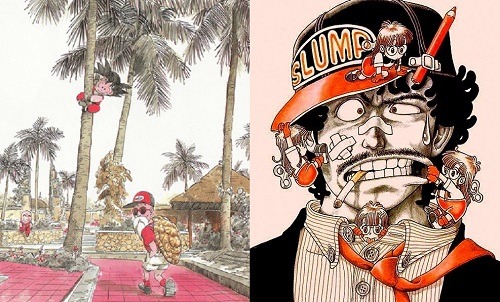
Here on AcquiredStardust we don't talk about anime enough and we wish that beginning to rectify this could've come under better circumstances. Just what is the Daydream Generation anyway? Join Ash as she attempts the impossible task of summarizing the importance of the 'god of manga' Akira Toriyama after his passing earlier this month in this special tribute.
Late Thursday night news finally broke on social media that beloved manga author Akira Toriyama had passed away several days before, prompting an immediate outpouring of grief the world over. Many of us feel a deep sense of loss in a way unimaginable before his work achieved the level of cultural penetration and ubiquitous veneration that it has, and it is impossible to overstate the singular importance he had in shaping our modern culture.
Responsible for hit manga Dr. Slump and Dragon Ball which quickly found themselves at the forefront of the Japanese pop culture renaissance of the Showa period, Toriyama's work is possessed of a rare combination of an earnest childlike wonder and adventure that is perfectly serviced by an instantly recognizable art style that is something of a rite of passage to for budding artists to imitate. It is in that Showa boom period that the Daydream Generation, a term coined by Toriyama disciple Yoshihiro Togashi's Yu Yu Hakusho particularly as the title of its 5th ending theme, is forged.
It is no overstatement to refer to Akira Toriyama as "the god of manga", and in fact he is referred to as such by Masashi Kishimoto of Naruto fame. It is Kishimoto's generation, coming of age in the Showa era in which Toriyama produces his most significant works, that finds themselves first so captivated by it. Although anime is in the middle of a golden age by the time Toriyama's work is published (lead perhaps most by Leiji Matsumoto of Galaxy Express 999/Captain Harlock fame and Mobile Suit Gundam visionary Yoshiyuki Tomino), Toriyama's work forges a connection with Japanese readers in a way that other work hasn't quite in the same way.
Perhaps it is the clean linework, deceptively simplistic and stylish all at once. Perhaps it is the expressive characters often named with clever puns or food related names. Perhaps it is familiar cultural touchstones and elements of comedy and parody rolled seamlessly into each other. Perhaps it is the refinement in elements popularized by contemporary works like Ring ni Kakero such as the frequent use of tournaments as a framing for the plot Perhaps it is the rare ability for Toriyama to create characters that often appeal equally to male and female readers without either demographic rejecting them, feat only rivaled with any real frequency by authors Rumiko Takahashi and Hiromu Arakawa.
Regardless of the cause, the strong creative voice and earnestness that shines through Dr. Slump and Dragon Ball does something special for children of the Daydream Generation: it makes the job of creating manga seem more attainable than other works of the time do. It gives a generation of children the ability to dream, some for the first time, of their own works. It is in the immediate wake of these works that authors such as Masashi Kishimoto, Yoshihiro Togashi, Tite Kubo and Eiichiro Oda come of age and dream of their own works in direct inspiration from them.
The Daydream Generation, sat in their desks at class fantasizing about a world in which they too would be able to pursue creative dreams in a postwar Japan perhaps otherwise unattainable to them without first being armed with the sense of accessibility that Toriyama provided readers, affectionately refer to Toriyama as 'sensei' nearly universally. It is he who is the god of manga, revered and emulated - Toriyama, more so than any individual, is responsible for the explosion of Japanese pop culture in this era and many manga authors are frank in their admittance of such. It isn't just limited to the world of manga either, as Toriyama has a hand in multiple iconic video games such as Enix's Dragon Quest and Square's Chrono Trigger.
But then something equal parts special and unlikely happens: in the late 1990s Toriyama's work begins to be exported into the west with relatively minimal changes to the source material, and the whole process repeats itself. This time with a constant flow of follow up works by the Daydream Generation to help Japan's global pop culture takeover.
Anime's infiltration into the west played out on college campuses, and in those early days of fandom defined by import VHS and LaserDisc it was nearly unthinkable that it would end up mainstream enough to appear on television. While early ground is gained on anime in the mainstream (particularly Ronin Warriors hitting television in a largely unedited form in 1995 as well as multiple attempts to import Sailor Moon around the same timeframe, not to mention Pokemon's debut in late 1998), it is not until the revamping of Cartoon Network's Toonami block, spearheaded by Dragon Ball Z, that anime would truly arrive in the west.
The importance of Toonami in getting anime in front of the eyes of the generation following the Daydream Generation in America cannot be overstated. It was the first time many of us laid eyes on animation that wasn't an episodic comedy, with more mature themes. It was the first time we had encountered drastic cultural differences inherent in anime. For many of us, particularly in the case of Dragon Ball Z, it was even the first time we began to see animation and even creativity as being something that comes from someone rather than spontaneously generating itself for consumption. For the first time in my memory a mania kicked off with the addition of Dragon Ball Z to Toonami in 1999 that changed the way my generation thought about and consumed media.
Gathered around our own desks ten plus years later, American children male and female alike passionately discussed Dragon Ball Z. We debated power levels, questioned what other planets and races populated the universe of the series, and for the first time we discussed concepts that were unknown to us just a short time before: who was the creator of this series and where did it come from? Mirroring the effect that Toriyama's work had on the Daydream Generation many Milennials and Gen X people, especially those with no prior introduction to anime, found themselves absolutely captivated by Dragon Ball Z. Millions of young people put pencil to paper for the first time to imitate the art style of Toriyama brought to animated glory by the staff at Toei or to write fanfiction. We developed these skills and collaborated with each other now armed with the same sense of approachability that the Daydream Generation had years before us. And then the hits kept coming.
Serving as a gateway into a world of animation previously largely unknown in the west, Toonami exploded in the following years.
Starting in 2000 Toonami added Tenchi Muyou, a series almost completely different to Dragon Ball Z which would go on to be an influence in Dana Terrace's recent Disney hit The Owl House, and Mobile Suit Gundam Wing. The Gundam franchise, originally popular in Japan contemporaneously with Akira Toriyama's work, had seen many followups and spinoffs in the years after the original series ended and had itself become a titan of Japanese pop culture. Finally hitting the west using Dragon Ball Z as a bridge, it was the first time many of us were introduced to animation as a medium for communicating complicated political ideas.
Perhaps most significantly, as is easily observed through diving into the wealth of old abandoned websites from the Geocities era, Gundam Wing served as a vehicle through which young people were introduced to male characters that all seemed to have romantic chemistry with each other. Having both lived through the era and examining it in retrospect I say with all sincerity that it was Gundam Wing that helped begin the yaoi craze in the west, by then a well established thing in Japan, and was therefore absolutely instrumental in beginning to soften the attitudes of young people towards queer people in the west.
A strong hunger for more of this extremely different kind of animation had been created and the floodgates were about to open. Years immediately following saw the broadcast of memorable anime such as Outlaw Star and The Big O. 2003 saw Nobuhiro Watsuki's unavoidably Japanese historical fiction piece Rurouni Kenshin debut in America, Yoshihiro Togashi's Yu Yu Hakusho finally make the transition to the west followed by Eiichiro Oda's One Piece and Masashi Kishimoto's Naruto in 2005. Each of these works massively impacted my generation and empowered us in a different way: whereas the Daydream Generation saw the opportunity to create their own works my generation had the luxury of exploring these works, full of ideas and states of being unknown to us before then. We were armed with the ability not just to create our own works but to create ourselves and to decide who we would be far more liberally than we would have otherwise been comfortable doing in the past.
It is worth noting that Toonami did not have total dominion over the boom of anime in America: while there were others in later years, latenight programming [Adult Swim] pursued an older viewer who was hungry for even more of what the wide world of anime had to offer. Rumiko Takahashi's Inuyasha was an early favorite alongside the likes of such classics as Cowboy Bebop, Trigun and FLCL. Already massively influential in his own right, it was using Akira Toriyama's work as a foothold that quite literally proved to be the breakthrough moment for anime in the west and provide any of these incredible shows with an audience here.
As such there are few people you can point to as singularly responsible for shaping the way our culture (and that's culture at large - not just pop culture) works. Akira Toriyama's name is up there with the likes of Walt Disney and George Lucas in its weight. His works and the bridge they provided to other works helped to reshape the way we communicated with each other, the ways in which we saw ourselves, and the things we dared to dream. Millions and millions of people pursued writing or drawing, or the powerful physiques of Akira Toriyama's characters featured in Dragon Ball, and those who were inspired by him continue to share his work with their offspring ensuring his timeless classics remain in circulation perpetually.
He is, while not the origin point, the biggest guiding hand in so many aspects of our culture and the man most singularly responsible for the exporting of Japanese pop culture to the world. He has left behind an incredible legacy that few could ever hope to achieve and fewer yet will, and more importantly he inspired generations of people to be and do things they otherwise never would've thought possible. Both directly and indirectly his fingerprints are all over what you enjoy perhaps without even realizing it, and it's unlikely that will ever go away no matter how far we get from his life and work.
#acquired stardust#anime#manga#akira toriyama#dr slump#dragon ball#dragon ball z#dragonball#dragonball z#toonami#anime spotlights#adult swim#midnight run#toei#toei animation#bird studio#ThankYouToriyama#thank you toriyama#ash
28 notes
·
View notes
Text
Percentage of Star Trek Voyager Episodes Focused on Each Major Character
I’ve been thinking about which major characters Voyager spends the most time focusing on, and which characters are more often left in the background. I decided to collect data on this topic, and I made the following graph:
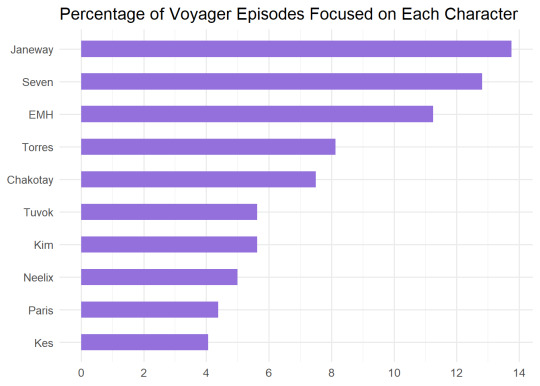
The percentage for each character on the graph represents an estimate of the percentage of the total number of Voyager episodes that are focused on that particular character. Double episodes were counted as singular episodes, bringing the total number of Voyager episodes counted for the graph to 160.
Episodes that I judged as focusing fairly equally on two major Voyager characters counted as half an episode for each of those two characters in my percentage calculation. I decided to do this because I felt it more accurately represented the overall proportion of time that Voyager allocates to each character than if I were to only count episodes that focused solely on one character. Episodes that focused equally on three or more major characters were not counted in the graph.
After tallying every episode that I judged as focusing primarily on either one or two major characters, 22% of Voyager’s episodes remained uncounted. These were generally episodes that focused on the crew as a whole, or on characters outside of the main cast.
Obviously, all of my decisions about which episodes to count for which characters are subjective. There are a lot of complicated questions to ask, such as, how does one draw a distinction between an episode focused on Janeway in particular versus an episode that focuses on the whole crew where Janeway takes the most significant role in the plot simply by virtue of being the Captain? Or how does one count episodes such as Someone to Watch Over Me or The Haunting of Deck Twelve where the major subjects of the story and the character whose perspective it is told through differ? I made my own determinations for each episode, but there is plenty of room for alternate interpretations, some of which might cause a significant shift in the allocation of episodes to each character.
I welcome any disagreement with or discussion about the methodology I used here. I also welcome analysis of what this data means – whether it reflects positively or negatively on Voyager as a show, how it fits with or contradicts popular perceptions, or anything else.
A full list of episodes that I counted for each character is below the cut.
Kathryn Janeway:
Parallax (with Torres – half points)
Time and Again (with Paris – half points)
The 37’s
Resistance
Alliances
Deadlock
Resolutions (with Chakotay – half points)
Sacred Ground
The Q and the Grey
Macrocosm
Coda
Scorpion (with Chakotay – half points)
Year of Hell
Concerning Flight
Prey (with Seven – half points)
The Omega Directive (with Seven – half points)
Hope and Fear (with Seven – half points)
Night
Counterpoint
11:59
Equinox (with Chakotay – half points)
Fair Haven
Good Sheppherd
The Void
Q2
Endgame
Seven of Nine:
The Gift (with Kes – half points)
The Raven
Prey (with Janeway – half points)
Retrospect (with EMH – half points)
The Omega Directive (with Janeway – half points)
One
Hope and Fear (with Janeway – half points)
Drone
Infinite Regress
Bliss
Dark Frontier
Think Tank
Someone to Watch Over Me (with EMH – half points)
Relativity
Survival Instinct
One Small Step
The Voyager Conspiracy
Tsunkatse (with Tuvok – half points)
Collective
Child’s Play
Unimatrix Zero
Imperfection
Body and Soul (with EMH – half points)
Human Error
Natural Law (with Chakotay – half points)
EMH/The Doctor:
Heroes and Demons
Projections
Lifesigns
The Swarm
Real Life
Revulsion (with Torres – half points)
Message in a Bottle
Retrospect (with Seven – half points)
Living Witness
Nothing Human
Latent Image
Someone to Watch Over Me (with Seven – half points)
Tinker Tenor Doctor Spy
Virtuoso
Life Line
Critical Care
Body and Soul (with Seven – half points)
Flesh and Blood
Author, Author
Renaissance Man
B’Elanna Torres
Parallax (with Janeway – half points)
Faces
Prototype
Dreadnought
Remember
Blood Fever
Day of Honor
Revulsion (with EMH – half points)
Random Thoughts (with Tuvok – half points)
Extreme Risk
Juggernaut
Barge of the Dead
Muse
Drive (with Paris – half points)
Lineage
Chakotay:
Initiations
Tattoo
Maneuvers
Resolutions (with Janeway – half points)
Unity
Scorpion (with Janeway – half points)
Nemesis
Waking Moments
Unforgettable
In the Flesh
The Fight
Equinox (with Janeway – half points)
Shattered
Natural Law (with Seven – half points)
Tuvok:
Ex Post Facto (with Paris – half points)
Learning Curve
Meld
Innocence
Flashback
Alter Ego (with Kim – half points)
Rise (with Neelix – half points)
Random Thoughts (with Torres – half points)
Gravity
Riddles (with Neelix – half points)
Tsunkatse (with Seven – half points)
Repression
Harry Kim:
Emanations
Non Sequitur
The Chute (with Paris – half points)
Alter Ego (with Tuvok – half points)
Favorite Son
Timeless
The Disease
Warhead
Ashes to Ashes
Nightingale
Neelix:
Jetrel
Parturition (with Paris – half points)
Investigations (with Paris – half points)
Fair Trade
Rise (with Tuvok – half points)
Mortal Coil
Once Upon a Time
Riddles (with Tuvok – half points)
The Haunting of Deck Twelve
Homestead
Tom Paris:
Time and Again (with Janeway – half points)
Ex Post Facto (with Tuvok – half points)
Parturition (with Neelix – half points)
Threshold
Investigations (with Neelix – half points)
The Chute (with Kim – half points)
Vis a Vis
Thirty Days
Alice
Drive (with Torres – half points)
Kes:
Elogium
Cold Fire
Warlord
Darkling
Before and After
The Gift (with Seven – half points)
Fury
26 notes
·
View notes
Text
one of the few good faith questions about s1 gender roles is why louis is only paralleled with white women. why does the show make him iolanta, melisande, nora helmer, etc and not claire kendry or janie crawford, characters who also appear in literature from the show's time period. why is he reading flaubert, colette, edward carpenter and not claude mckay or nella larsen who actually writes a lot about interractial relationships. on one hand the showrunner is white and maybe those are the texts he feels most comfortable with, but there are more than a few black creatives working on the show who are contributing in significant ways.
first of all, characters like iolanta, stella kowalski and nora helmer do not need to be white. they are white in their original forms because the writers were white and sometimes based them on real people. tenessee williams always wanted to have streetcar performed by diverse casts even though he based the characters partly on people in his own family. many productions now have non-white actresses in these roles (assad zaman was in one of these productions of a doll's house). also we can safely say lestat assigns melisande to louis because that's the kind of shit he's into (french opera based on a belgian story) and he's not really well read.
beyond that though, to me the reason louis is paralleled with white women is because he's married to a white man in 1910 louisiana where not only was interracial marriage illegal but homosexual relations and even interractial cohabitation were banned. but because of lestat's power, money and their vampire powers, these roles don't really apply to them. people who were in interracial or homosexual relationships in the 1910s had very different struggles and conflicts from loustat, like most of them could barely step outside without worrying about their safety. they certainly wouldn't be parading around society together all the time while even the politicians and authorities know about their relationship. so how do you make sense of your marriage if its very existence is anachronistic?? who's writing about your experiences if your experience is such an outlier in your society literally due to supernatural forces? there's no shortage of black literature in this time period (which overlaps with the harlem renaissance!) but being married to a white man is quite fundamentally different to being married to a non-white man especially in early 20th century. a white man has complete control over his dominion which includes the home and the outside world. a non-white man may have control over his home but the minute he steps out the door he's at the mercy of white men, he could be killed for simply looking at someone the wrong way, which makes non-white men impossible to relate to lestat. and who was allowed to be married to white men in those days? white women.
and ultimately louis is nora because the conflict of needing to escape an overbearing husband was something allowed only to white women in literature/theater. the reason we find so many parallels between louis and white female characters like belle even now is because his role in this story is largely reserved for white women and this has clearly ruffled a lot of feathers because its unfamiliar. i'll be curious to see what the show does as time moves forward but for season 1 it's very clear to me why the show chose these specific intertextual references.
#the loumand dynamic in s2 intrigues so much for this reason#cause we are moving into a lot more liberated territory#for louis who is so well read especially how does he relate his story to the stories he's read#iwtv
89 notes
·
View notes
Text
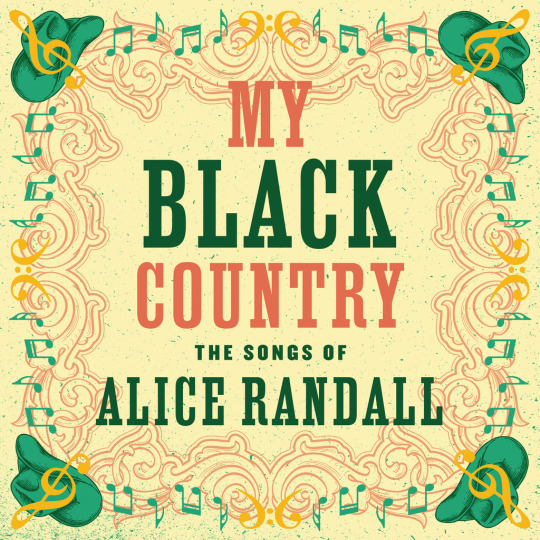
ALICE RANDALL, on how she became a country music writer at the age of 23
Well, I decided to become a Black country songwriter and publisher. I was founding Midsummer Music because I was born in Detroit City in 1959, at the same year as Motown Records, and my father did not read books to me. He told me stories, and one of the stories he told me over and over was the founding of Anna Records that Barry Gordy's sisters had founded a year before Motown.
So he talked to me about women being song publishers and record company executives and songwriters, and I heard those stories and followed in Anna's footsteps.
On writing country melodies
I teasingly say that my melodies are so simple that when the ones I come up with, if I can sing them, the whole world can sing them, so it goes well for having hit sometimes. But I came to Nashville via Harvard in Washington, DC so I sort of took the skills that I learned analyzing the Harlem Renaissance poets and Shakespeare and Jane Austen, and I applied them to country lyrics. I love British metaphysical poetry and American metaphysical poetry, and it was alive and it was alive and hiding in country and western music, and I found it.
On race in the country music industry
The racial fault line in country is all around that theme of the past is better than the present. In much of white country, the past that is better than the present is a mythologized Dixie. In much of Black Country, the past that is better than the present, is a time in childhood where your parents were able, against all odds, to protect you, or a lost Africa before colonization that's manifest by nature.
On what makes a country song, country
Well, the equation is Celtic, that's English, Irish, Scottish ballot forms, plus African influences, plus evangelical Christianity equals country music. Don't have the Black influences, and you probably got folk music. Don't have the evangelical Christianity, and you may have blues.
It's emotional, and they're themes, the big themes of country, as far as I see it. Life is hard, God is real, the road, family, and liquor are significant compensations, and the past is better than the present.
On metaphors
Well, these lyrics, these really complicated lyrics such as, ‘Drop kick me, Jesus, through the goalpost of life,’ that's an extended metaphysical conceit. And you know what? On Beyoncé’s new album, Cowboy Carter, Bodyguard is another one of those extended, complex metaphors that we see all through country.
On Black women in country music
I feel actually a Juneteenth, which is good news at long last. Because I will be 65 May 4th, and I have been in country and western music for 41 years professionally.
When I arrived here in 1983, Charlie Pride had been to the number one spot 29 times. It was about to go up for another time. So many Black men have gotten to the number one spot.
I can't remember all their names, but literally not one Black woman performer had gotten there. There's a phrase I want to say, cultural redlining. Black women have been culturally redlined out of that.
They had not been given the economic resources to make the campaign to get there. And Beyoncé eclipsed all of that. And I can retire now with a joy that all three of the things I wanted to see, they got done.
One came in right at the last moment, wouldn't have gotten there without Queen B.
On representation and the first time she heard one of her songs performed by Adia Victoria, a Black woman
I cried. I cried. Just thinking back on it right now almost makes me cry again.
It changed the whole beginning of my book, because I knew I had to start with that moment. Over the years, I've been honored, and I tell the story. Glenn Campbell, Moe Bandy, Radney Foster, Tricia Yearwood, so many extraordinary stars had sung my songs.
But no one had ever looked like me had sung one of my songs. And more significantly, listeners thought all the heroes and sheroes in my songs were white, because the singers were white. And some of those heroes and sheroes, I had imagined them, all of them I had imagined as Black.
And I was willing and embraced people projecting their identities onto them, but I resisted the identities I had originally imagined and created being erased. And Adia Victoria added the color back to that cowboy. And 20 to 30% of all cowboys in the American West were Black and Brown, and they deserve to be remembered.
And if we don't remember them, we cannot properly encounter Cowboy Carter.
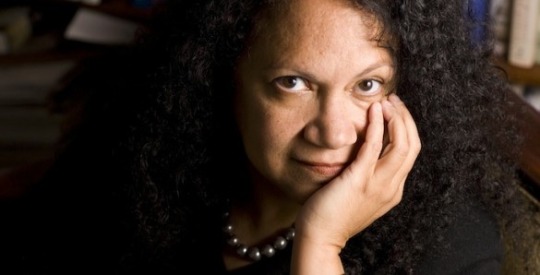
#alice randall#politics#music#country music#my black country#beyonce#cowboy carter#black country#texas holdem
22 notes
·
View notes
Text

this was more culturally significant than the renaissance
#tumblr 2014#grunge#aesthetic#lana del rey#2014 nostalgia#tumblr grunge#2014 aesthetic#arctic monkeys#the neighbourhood#tumblrgirl#poetry#the nbhd#tumblr#art#music#the 1975#wiped out#sad girl aesthetic#lorde pure heroine#lorde
266 notes
·
View notes
Note
In the ars goetia they are represented as kings, dukes, and so on.. but the demons like Mammon, Leviathan, they are not part of the ars goestia, so could we say there are different structures of hell?
Well, the Ars Goetia is only one part of the overall grimoire The Lesser Keys of Solomon -- and it is certainly not the only grimoire that exists historically! Other famous grimoires include the Dictionnaire Infernal and the Pseudomonarchia Daemonum, though these also are far from the only ones. In fact, we have a book -- The Dictionary of Demons -- which sources and lists over 1,700 demons that have been mentioned in various grimoires and other occult texts over the ages. And here is what that book has to say on rankings:
In the vast majority of grimoires, demons are typically assigned a rank and royal title to indicate their position in the pecking order of Hell. In the Testament of Solomon, [...] demons sometimes present themselves as princes and kings - positions largely in keeping with the concept of royalty that existed at the time. Medieval works [...] expand the demonic hierarchy to include a variety of positions: princes and kings, dukes and earls, counts, presidents, and even knights - positions reflective of the feudal system at work throughout Europe during that time.
The ranks attributed to the infernal legions may tell us more about the time period in which the various books of magick were penned than they do about the actual hierarchy of Hell.
It goes on to mention that seven ranks were eventually solidified within demonology, as seven was a number "of great significance in medieval and Renaissance Europe" due to the number of planets known at the time and the thought of seven spheres making up the heavens. The Lesser Key of Solomon was responsible for then assigning planets to each of the ranks, which in turn were linked to metals, and those metals were needed for the magical seals.
Basically, the ranks do sort of establish a sense of hierarchy in hell, but practically speaking, humans mainly need pay attention to those ranks more just for the magical practice of knowing how to deal with the demons correctly.
That said, we've talked about the Hierarchy of the Devildom in this post, which also lists the seven titles. It's also important to note that Mammon and Leviathan in particular are actually demons derived from other concepts/beings -- Mammon originally just meant money/riches, and Leviathan comes from a sea serpent referenced in the Bible, which actually has roots in Lotan. So Levi himself is actually Lotan, and he's just doing a really exaggerated roleplay when he says he's summoning Lotan. So in terms of different ranking structures then, the answer is sort of yes, sort of no. It's a mess of manmade governing systems as applied to theological creatures over time.
But in OM canon, we can very conveniently just throw most of this out because Diavolo is the one and only Future Ruler of the Devildom, the brothers and Barbatos are his immediate council, and everyone else serves as just general "nobles," such as the House of Lords. They probably have more in-depth hierarchies amongst themselves -- but for all we need to care about in the game, they're a big hassle of demons who give Diavolo (and the brothers) a hard time and should back the fuck off!! :)
#excuse our demonology word vomit lol#obey me#obey me!#obey me swd#obey me shall we date#omswd#obey me nightbringer#obey me nb#omnb#demonology resources#obey me worldbuilding#not rly worldbuilding here but yknow#ask and ye shall be answered#ask and ye shall receive (essays)
78 notes
·
View notes